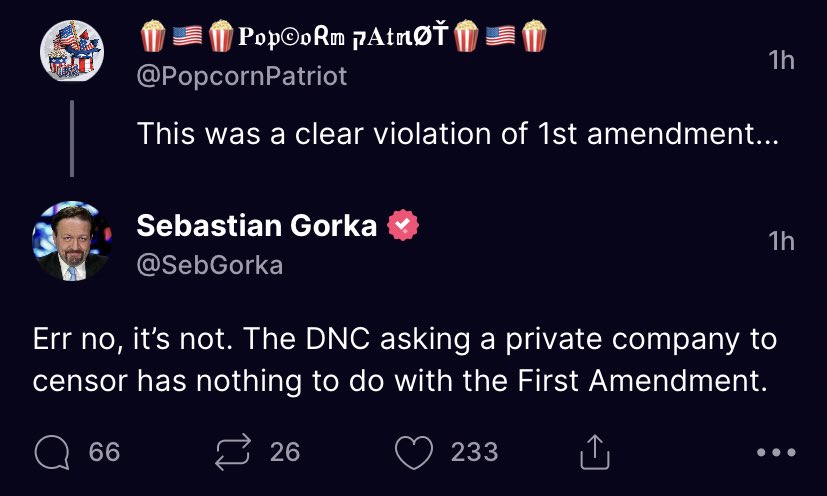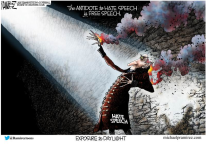I think the only speech that should be allowed is speech that is approved of by Democrats and only by the Republicans whom Democrats approve of. Don't you?
You cannot go wrong if you have your legal counsel examine the pertinent case law and set your policy directly according to it, because case law has intricately delimited the fine line between protected and non-protected speech. Libel and slander, and falsely yelling Fire in a crowded theater, and bomb threats, and menacing, intimidating, and threatening, and other things made explicit in case law in this country, are not protected, so indisputable cases of those things should be censored if you're not an irresponsible business. You cannot go wrong with such a policy, since you know ahead of time the result of any legal dispute which comes before a law court will be in your favor.
It isn't like this is unknowable. On the other hand, what about your advertisers? Will they approve of your policy, if all it does is toe the line drawn clearly in case law? Or are they woke, and they demand you censor other things too, and not just the things that cross the line into ambiguous irresponsibility? Do they stop doing business with you, or will they not even consider, as a matter of policy, doing business with you? because your censorship policy is wrong (in their eyes)? If your policy is just openly (as in, publish it) toeing the line drawn clearly in case law, then your advertisers are just subject to the law, rather than you being subject to their bizarre, amateur, juvenile, and un-Constitutional political ideologies.
Your legal counsel should examine this proposal and tell you whether it makes sense, then you just don't have to worry about woke advertisers because you only care about the actual law, and that's a very easy to defend position, no matter who you're dealing with, if you're dealing with someone who says they believe in the rule of law. If they believe in the rule of law, they'll respect your policy when it's 100% based on the actual law.

en.wiktionary.org





